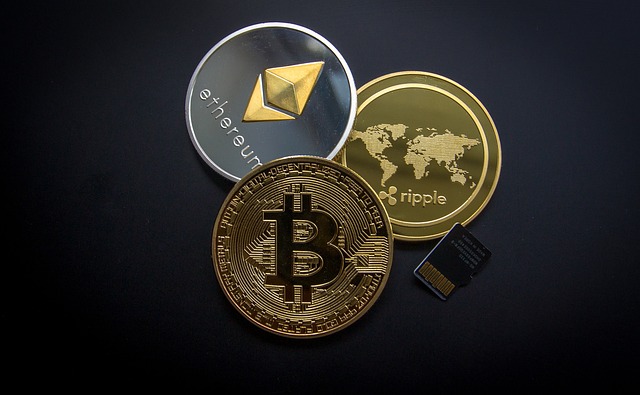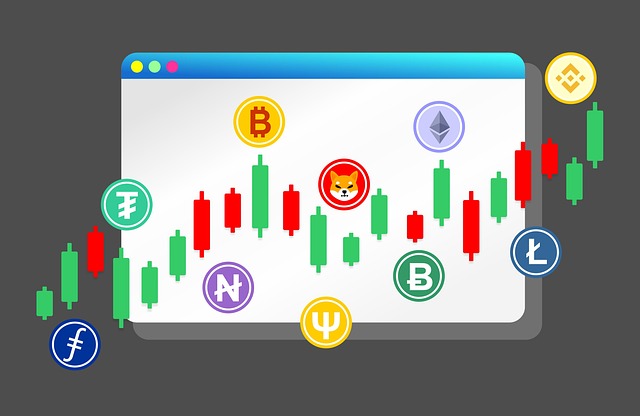In recent years, the world of cryptocurrencies has taken the financial sector by storm, providing myriad opportunities for both investors and casual users. One of the most crucial components of engaging with the crypto ecosystem is a reliable and secure crypto wallet. In this article, we will explore the future of crypto wallets, their types, functionalities, and why they are indispensable for anyone looking to venture into the world of digital assets.
Understanding Crypto Wallets
Author: Jameson Richman Expert
Published On: 2025-02-10
Prepared by Jameson Richman and our team of experts with over a decade of experience in cryptocurrency and digital asset analysis. Learn more about us.
A crypto wallet is a digital tool that allows users to store, send, and receive cryptocurrencies. Unlike traditional wallets, which hold physical cash, crypto wallets do not hold the actual cryptocurrency. Instead, they store the public and private keys that are necessary for conducting crypto transactions. There are various types of wallets available in the market today, each designed to provide different levels of security and convenience.

Types of Crypto Wallets
Understanding the different types of crypto wallets is essential for anyone keen on managing their digital assets effectively:
1. Hardware Wallets
Hardware wallets are physical devices, akin to USB drives, that securely store users' private keys offline. These wallets provide robust security against online threats and are generally considered the safest option for holding a large amount of cryptocurrencies. Popular hardware wallets include Trezor and Ledger.
2. Software Wallets
Software wallets can be downloaded as applications on computers or smartphones. They are more convenient than hardware wallets but come with a higher risk as they are constantly connected to the internet. Software wallets can be categorized further into:
- Desktop Wallets: Installed on a personal computer, offering complete ownership of private keys.
- Mobile Wallets: Designed for mobile devices, allowing easy access to cryptocurrencies on the go.
- Web Wallets: Accessible through web browsers, they offer the highest convenience but at the expense of security.
3. Paper Wallets
A paper wallet is a physical printout of your public and private keys. These wallets are offline, making them immune to online hacking but require careful storage to prevent loss or damage.
The Importance of Security
With the growing popularity of cryptocurrencies, security remains a paramount concern. Crypto wallets must implement strong security protocols to protect users’ assets. Here are some ways to enhance wallet security:
- Two-Factor Authentication (2FA): This adds an extra layer of security by requiring two forms of verification before access.
- Cold Storage: Keeping cryptocurrency offline in a hardware wallet or paper wallet reduces the risk of hacks.
- Regular Updates: Ensure that wallet software is regularly updated to protect against vulnerabilities.
The Rise of Multi-Currency Wallets
As the cryptocurrency market expands, users are increasingly seeking wallets that can manage multiple digital currencies seamlessly. Multi-currency wallets allow users to store a wide variety of cryptocurrencies together, making it convenient for trading and management. This trend is likely to continue as crypto adoption grows worldwide.

User-Friendly Interfaces
As cryptocurrencies become more mainstream, the demand for user-friendly interfaces in wallets is rising. Users want wallets that are intuitive, easy to navigate, and provide essential features without overwhelming complexity. Companies developing wallets are investing heavily in user experience (UX) design to attract new users.
Integration with Exchanges
Seamless integration between crypto wallets and cryptocurrency exchanges is becoming increasingly important. For example, users often desire the ability to buy and sell cryptocurrencies directly from their wallets. This integration simplifies trading and reduces the need to move assets across different platforms. Binance is a prime example of an exchange offering wallet services, making it easier for users to manage their investments.
Future Trends in Crypto Wallets
The future of crypto wallets looks promising, with numerous trends on the horizon:
1. Enhanced Privacy Features
As privacy concerns grow, future wallets may incorporate features that allow users to keep their transactions anonymous and safeguard their identities.
2. Improved Cross-Platform Accessibility
There's a strong push towards wallets that can operate seamlessly across multiple platforms, devices, and operating systems, enhancing accessibility for users.
3. Integration with DeFi
With the rise of Decentralized Finance (DeFi), crypto wallets will likely develop features that make it easier for users to lend, borrow, and earn interest on their assets.

Why You Need a Crypto Wallet
For anyone looking to enter the world of cryptocurrencies, a reliable wallet is non-negotiable. Here are several reasons why you need one:
- Ownership of Assets: A wallet allows you complete control over your cryptocurrency, as opposed to leaving it on an exchange.
- Security: Enhanced security features protect your assets from theft and hacks.
- Convenience: Wallets make it easier to send, receive, and store cryptocurrencies with just a few clicks.
Selecting the Right Crypto Wallet
Choosing the right crypto wallet depends on individual needs and preferences. Here are some factors to consider:
- Security Features: Assess the wallet's security features and history of hacks.
- User Interface: Make sure the wallet is user-friendly and easy to navigate.
- Supported Currencies: Verify that the wallet supports the cryptocurrencies you're interested in.
- Backup Options: A good wallet should offer backup and recovery options in case of loss.
Conclusion
As cryptocurrencies continue to revolutionize the financial landscape, the importance of reliable and secure crypto wallets cannot be overstated. By choosing the right wallet, users can ensure that their digital assets are safe while enjoying the benefits of convenience and control. As the technology surrounding wallets evolves, embracing these innovations will position users favorably in this dynamic space.
For those looking to start using a crypto wallet, consider signing up for exchanges like Binance or explore multi-currency options at MEXC for a holistic crypto experience.
The landscape of crypto wallets is ever-evolving, and staying informed will undoubtedly guide individuals towards smarter investment choices in the world of digital finance.